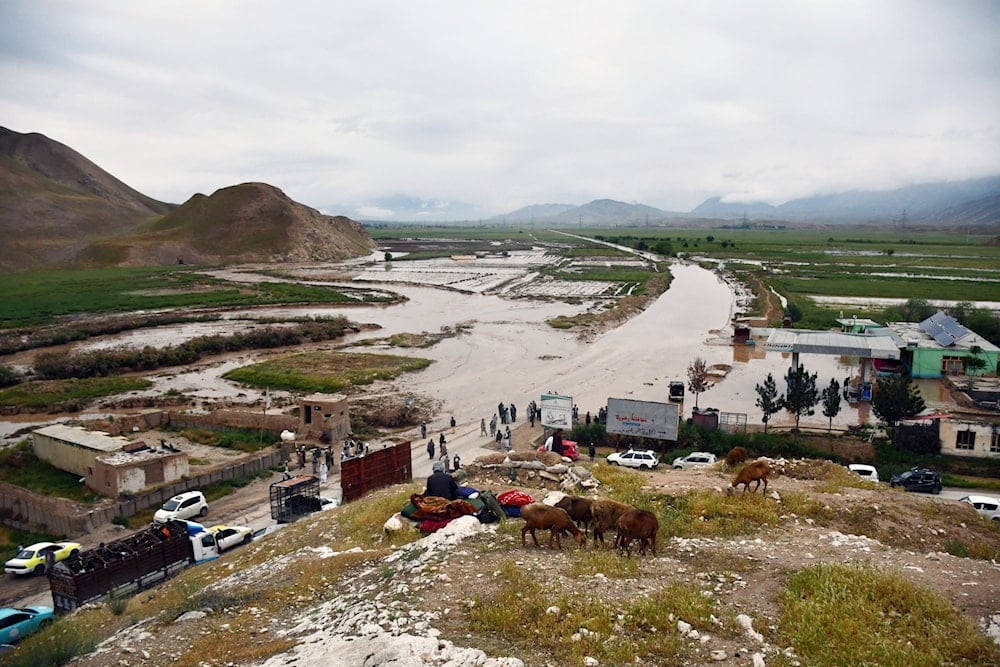62 killed in northern Afghanistan flash floods, toll likely to rise
A disaster management official says heavy seasonal rains sparked the flooding, and residents were unprepared for the sudden rush of water.
-

Afghan people gather along a road before a flooded area between Samangan and Mazar-i-Sharif following a flash flood after heavy rainfall in Feroz Nakhchir district of Samangan Province on May 11, 2024. (AFP)
Deadly flash flooding in northern Afghanistan has killed 62 people, mainly women and children, an official confirmed, as emergency crews continue searching for any additional possible victims.
A disaster management official in the province of Baghlan said heavy seasonal rains sparked the flooding, and residents were unprepared for the sudden rush of water.
"The number of dead in today's flood in Baghlan province has risen to 62," Hedayatullah Hamdard, the head of the provincial natural disaster management department, told AFP, noting that the toll "will probably increase."
Emergency personnel were "searching for any possible victims under the mud and rubble, with the help of security forces from the national army and police," Hamdard said earlier.
He mentioned that dozens of tents, blankets, and food were provided to those who lost their homes.
Authorities report that since mid-April, flash flooding and other floods have claimed the lives of approximately 100 individuals across 10 provinces in Afghanistan.
In a country where 80% of its over 40 million population relies on agriculture for daily bread, vast swathes of farmland have been swamped.
Officials also confirmed significant damages from Friday's rains in northeastern Badakhshan and central Ghor provinces.
Zabihullah Mujahid, spokesperson for the Taliban government, pledged governmental assistance to those affected by the flooding nationwide.
Mohammad Akram Akbari, the provincial director overseeing natural disaster management in Badakhshan, lamented "heavy financial losses in several areas" in the mountainous province due to floods.
He expressed concerns over potential casualties in Tishkan district, where flooding has obstructed transportation routes, isolating an estimated 20,000 residents.
Afghanistan, which experienced a notably dry winter affecting its soil's absorption capacity, remains highly exposed to climate change.
Standing among the world's most impoverished nations, Afghanistan is ill-equipped to confront the ramifications of global warming, according to scientists.
A staggering half of Afghanistan's population lives below the poverty threshold, with 15 million people grappling with food insecurity, as outlined by the World Bank.
Experts highlight that Afghanistan ranks sixth among countries most imperiled by climate change.
Read more: Over 2,000 dead in western Afghanistan earthquakes

 2 Min Read
2 Min Read








